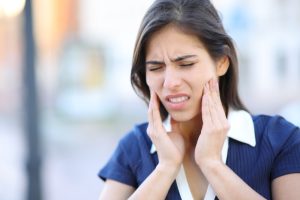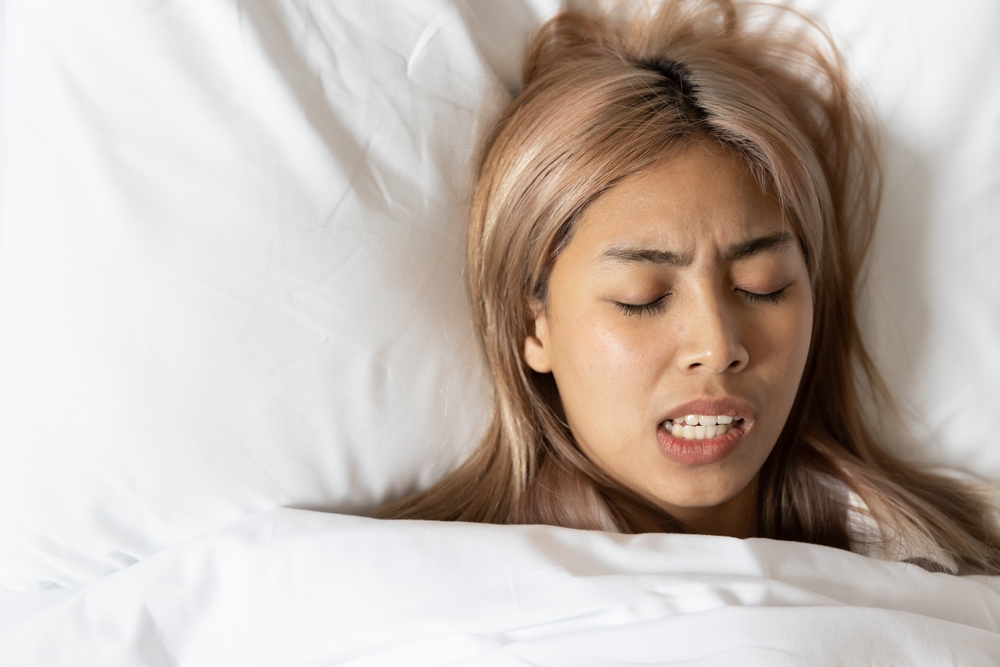How Your Mouth Could Be the Key to Better Sleep Quality
When you think about getting better sleep, you probably consider your mattress or room temperature. But there’s one factor that rarely crosses anyone’s mind: your mouth. The relationship between oral health and sleep quality affects millions of people every night, yet most don’t realize the connection exists.
Your mouth doesn’t shut off when you sleep. In fact, problems with your jaw, breathing, or oral health can fragment your sleep cycles and leave you feeling exhausted. At Lexington Dental of Owasso, Dr. Jacob Cary often sees patients whose sleep problems were actually rooted in oral health issues they never suspected.
To learn more or to schedule an appointment, call our Owasso, OK, dental practice near you at (918) 274-8500.
How Breathing Affects Your Sleep
Mouth vs. Nose Breathing
Your nose is designed to filter, warm, and humidify air before it reaches your lungs. When you breathe through your mouth during sleep, you bypass these natural processes and create problems for your oral health.
Mouth breathing dramatically reduces saliva production. Since saliva is your mouth’s natural defense against bacteria, a dry mouth all night allows harmful bacteria to multiply freely. This leads to morning breath, increased cavities, gum inflammation, and poor sleep quality.
Common causes of mouth breathing include:
- Nasal congestion from allergies or colds
- Enlarged tonsils or adenoids
- Deviated septum
- High, narrow palate
Sleep Apnea and Your Mouth
 Sleep apnea occurs when your airway becomes blocked during sleep, causing breathing to stop temporarily. Your mouth plays a crucial role in this condition. The size and position of your tongue, jaw shape, and bite alignment all influence how well air flows through your upper airway.
Sleep apnea occurs when your airway becomes blocked during sleep, causing breathing to stop temporarily. Your mouth plays a crucial role in this condition. The size and position of your tongue, jaw shape, and bite alignment all influence how well air flows through your upper airway.
People with sleep apnea often develop:
- Enlarged tongues from chronic swelling
- Tooth grinding from struggling to breathe
- Changes in their bite from repositioning their jaw
Jaw Problems That Disrupt Sleep
TMJ and Teeth Grinding
 Your jaw joints (TMJ) should rest comfortably during sleep. However, stress, poor bite alignment, or missing teeth can cause dysfunction, leading to jaw pain and teeth grinding (bruxism).
Your jaw joints (TMJ) should rest comfortably during sleep. However, stress, poor bite alignment, or missing teeth can cause dysfunction, leading to jaw pain and teeth grinding (bruxism).
TMJ problems create a cycle of poor sleep:
- Jaw pain makes it hard to fall asleep
- Grinding keeps the jaw muscles tense all night
- Muscle tension spreads to the neck and shoulders
- Morning headaches prevent quality rest
Finding the Right Jaw Position
Your jaw has a natural resting position with a small gap between your upper and lower teeth. Missing teeth, dental work that doesn’t fit properly, or poor sleep position can force your jaw into unnatural positions, causing muscle fatigue and preventing deep sleep.
Your Tongue’s Role in Sleep
Your tongue should rest against the roof of your mouth, with the tip just behind your front teeth. This position helps maintain proper airway space. However, many people have poor tongue posture due to mouth-breathing habits or tongue-tie.
When your tongue rests in the wrong position during sleep, it can fall back and partially block your airway, contributing to snoring and sleep apnea.
When Dental Pain Ruins Sleep
Tooth pain often feels worse at night for several reasons:
- Lying flat increases blood flow to your head
- Fewer distractions make you more aware of pain
- Natural pain-fighting hormones are lowest at night
Even chronic low-grade dental infections that don’t cause obvious pain can affect sleep hormones and disrupt your natural sleep cycles.
Dental Sleep Medicine Solutions
Oral Appliances
Dentists who specialize in sleep medicine can provide custom oral appliances that:
- Reposition your jaw and tongue to keep airways open
- Protect teeth from grinding damage
- Offer a comfortable alternative to CPAP machines
At Lexington Dental of Owasso in Owasso, OK, Dr. Jacob Cary works with local sleep specialists to provide comprehensive care.
Other Treatments
- Night guards: Custom-fitted guards protect teeth and help relax jaw muscles
- Tongue exercises: Simple exercises can improve tongue posture and breathing
- Palatal expansion: Widens the upper jaw to create more breathing space
Bacteria and Sleep Quality
During sleep, saliva production decreases, allowing harmful bacteria to flourish. This bacterial overgrowth doesn’t just cause morning breath—it creates inflammation that can interfere with sleep hormones and prevent deep, restorative sleep.
Gum disease from bacterial overgrowth has been linked to numerous sleep disorders and may contribute to sleep apnea by causing swelling in airway tissues.
Simple Steps for Better Sleep
Nighttime Oral Care Routine
 Floss first to remove bacteria between teeth
Floss first to remove bacteria between teeth- Brush thoroughly with special attention to the gum line
- Clean your tongue with a scraper or toothbrush
- Use alcohol-free mouthwash to reduce bacteria
- Complete your routine 30 minutes before bed
Sleep Position and Environment
- Sleep on your side to keep your airways open
- Use proper pillow support to maintain neck alignment
- Maintain bedroom humidity at 30-50% to prevent dry mouth
- Keep bedroom temperature between 65 and 68°F
Foods and Drinks to Avoid Before Bed
- Sugary snacks that feed harmful bacteria
- Acidic foods that weaken tooth enamel
- Caffeine that reduces saliva production
- Alcohol that dries out your mouth
When to Seek Help
 Contact a dental professional if you experience:
Contact a dental professional if you experience:
- Loud, frequent snoring
- Waking up with dry mouth or jaw pain
- Morning headaches
- Daytime fatigue despite adequate sleep
- Visible tooth damage from grinding
What to Expect
A dental sleep evaluation examines your jaw joints, bite alignment, and airway space. Your dentist will ask about sleep habits, snoring patterns, and morning symptoms to determine if oral health issues are affecting your sleep.
If you’re experiencing sleep problems that might be related to your oral health, contact Lexington Dental of Owasso at (918) 274-8500 to schedule a consultation with Dr. Jacob Cary.
Quick Self-Assessment
Answer yes or no to these questions:
- Do you snore regularly?
- Do you wake up with a dry mouth or sore jaw?
- Do you grind your teeth?
- Do you breathe through your mouth at night?
- Do you get morning headaches?
- Are you tired despite seven to eight hours of sleep?
If you answered yes to two or more questions, your oral health may be impacting your sleep quality, and a professional evaluation could help.
Don’t Let Oral Health Rob You of Quality Sleep
Small changes in your oral health routine can lead to dramatically better sleep. The connection between your mouth and sleep quality is real and treatable. Don’t let undiagnosed oral health issues rob you of the restorative sleep you need.
For more information about how oral health might be affecting your sleep, contact Lexington Dental of Owasso at (918) 274-8500. Dr. Jacob Cary and the team are committed to helping patients in Owasso, OK, achieve better oral health and sleep quality.





